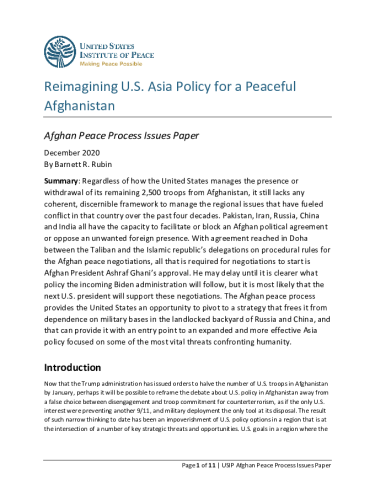Regardless of how the United States manages the presence or withdrawal of its remaining 2,500 troops from Afghanistan, it still lacks any coherent, discernible framework to manage the regional issues that have fueled conflict in that country over the past four decades.

Pakistan, Iran, Russia, China and India all have the capacity to facilitate or block an Afghan political agreement or oppose an unwanted foreign presence. With agreement reached in Doha between the Taliban and the Islamic republic’s delegations on procedural rules for the Afghan peace negotiations, all that is required for negotiations to start is Afghan President Ashraf Ghani’s approval. He may delay until it is clearer what policy the incoming Biden administration will follow, but it is most likely that the next U.S. president will support these negotiations.
This policy paper by Barnett Rubin, Senior Fellow at CIC examines how the Afghan peace process provides the United States with an opportunity to pivot to a strategy that frees it from dependence on military bases in the landlocked backyard of Russia and China, and how that can provide it with an entry point to an expanded and more effective Asia policy focused on some of the most vital threats confronting humanity.
Download the full paper here.
Note: The report was originally published by the United States Institute of Peace.


